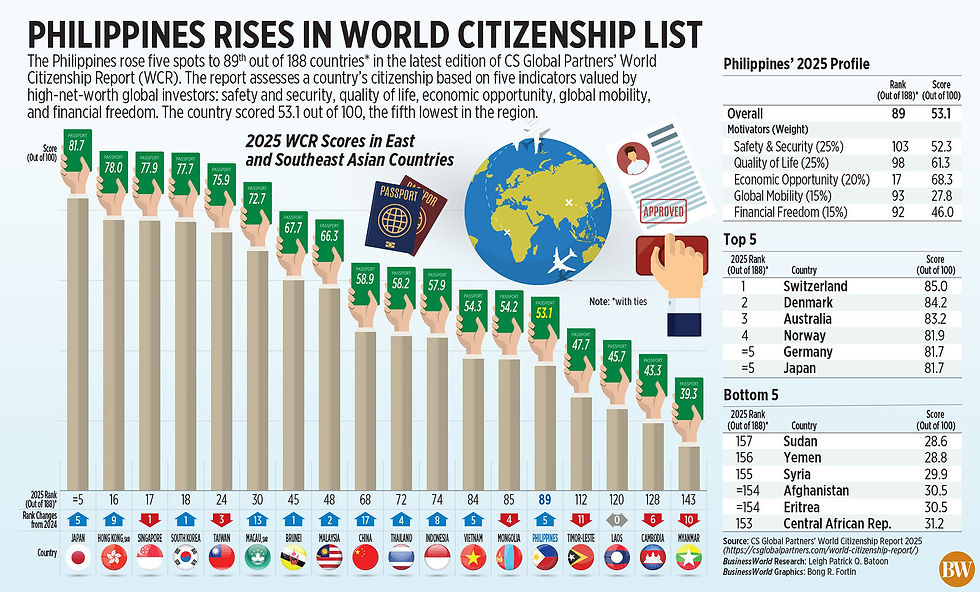- Ziggurat Realestatecorp

- Sep 14, 2025
- 2 min read
Property developers must consider expanding their presence in the industrial segment to attract foreign companies diversifying their supply chains, property consultancy Colliers Philippines said.
In its first half Metro Manila Industrial Report, Colliers said China and Taiwan companies that have shown interest in expanding here.
“The Philippines needs an efficient supply chain system to capture investments amid Trump’s new tariff impositions,” Colliers said.
“This is also crucial in future-proofing the industrial sector, enabling the Philippines to attract foreign direct investment amid challenges posed by elevated tariffs.”
US President Donald J. Trump in July imposed a 19% tariff on exports from the Philippines, Cambodia, Malaysia, Thailand and Indonesia.
According to Colliers, property firms must consider developing industrial parks and facilities to cater to more locators. It also cited opportunities to expand in Central Luzon, which hosts high-value manufacturers in industries like pharmaceuticals, fiber cement products, tire, and semiconductor segments.
In Central Luzon, Colliers projects 900 hectares of new industrial space to be delivered between 2025 through 2028.
“The development of new industrial parks and facilities in central and southern Luzon should provide potential locators with more options and opportunities to haggle for more attractive land leasehold and warehouse lease rates,” Colliers said.
For the second half of the year, semiconductors, consumer goods, cosmetics, and automotive firms are expected to drive demand in the industrial segment.
“Industrial space absorption should partly be supported by Chinese and Taiwanese firms expanding in the Philippines. Colliers sees the Philippines likely benefiting from the China+1 strategy,” according to the report.
The China+1 strategy refers to China-based companies diversifying their production operations to add more sites.
Colliers also cited the potential of ‘sunrise industries’ such as electric vehicles (EVs), as it expects more interest from EV firms looking for an industrial base in the region.
“Over the near to medium term, the Philippine government should entice other thriving sectors such as pharmaceutical firms and encourage them to manufacture in the Philippines,” it said.
Source: Business World


